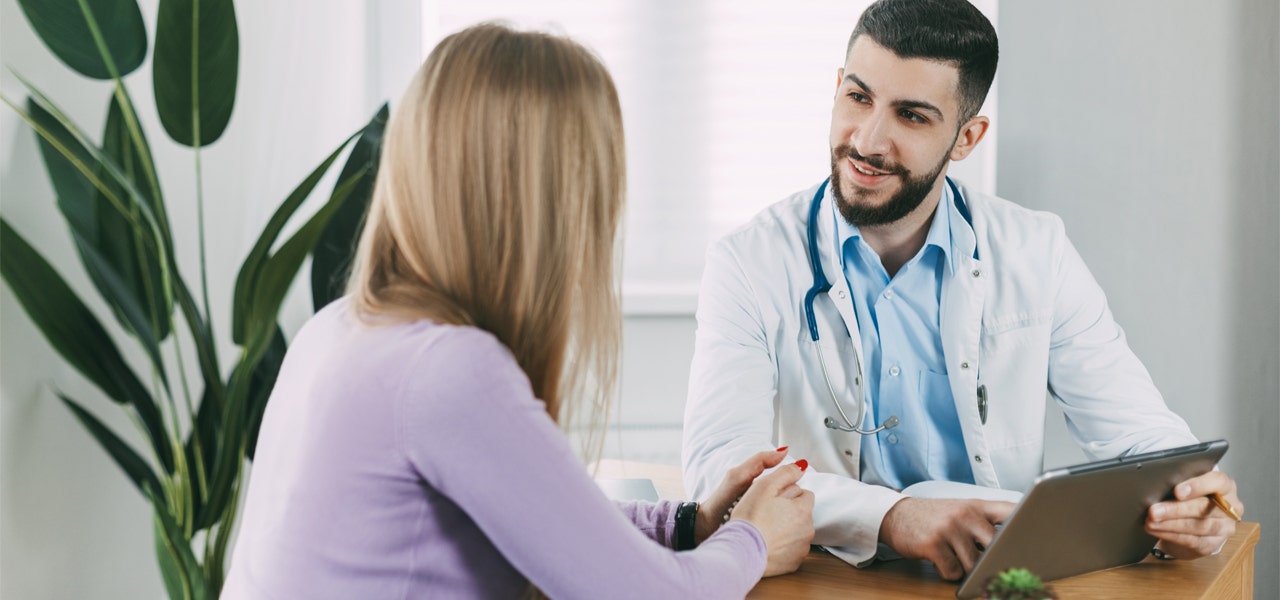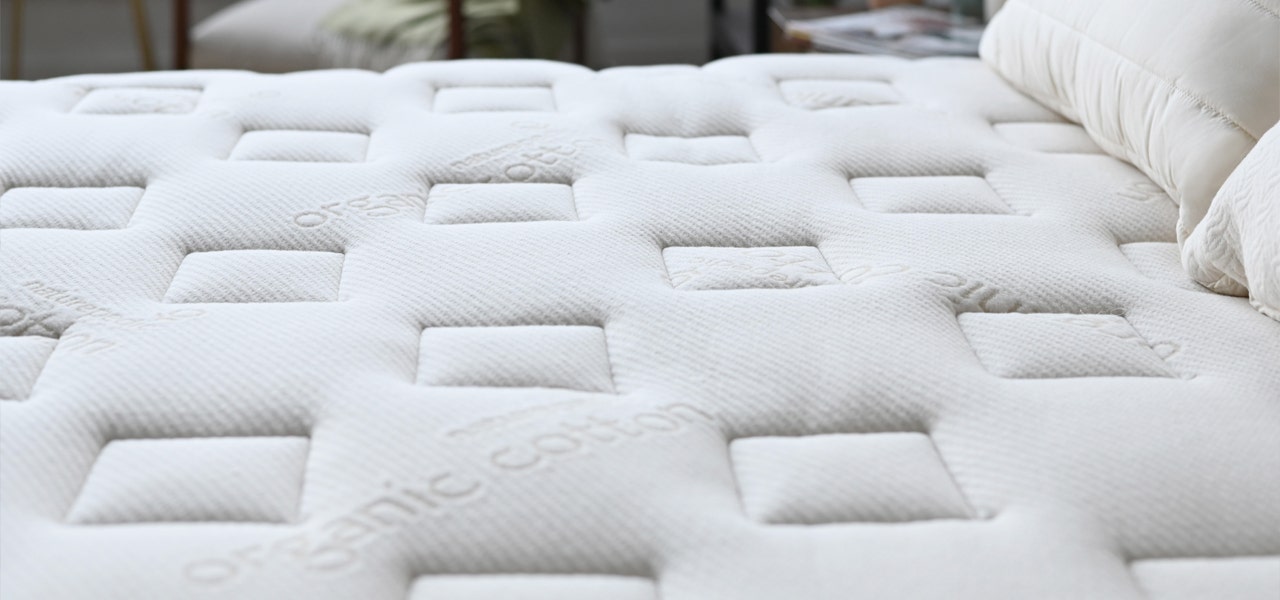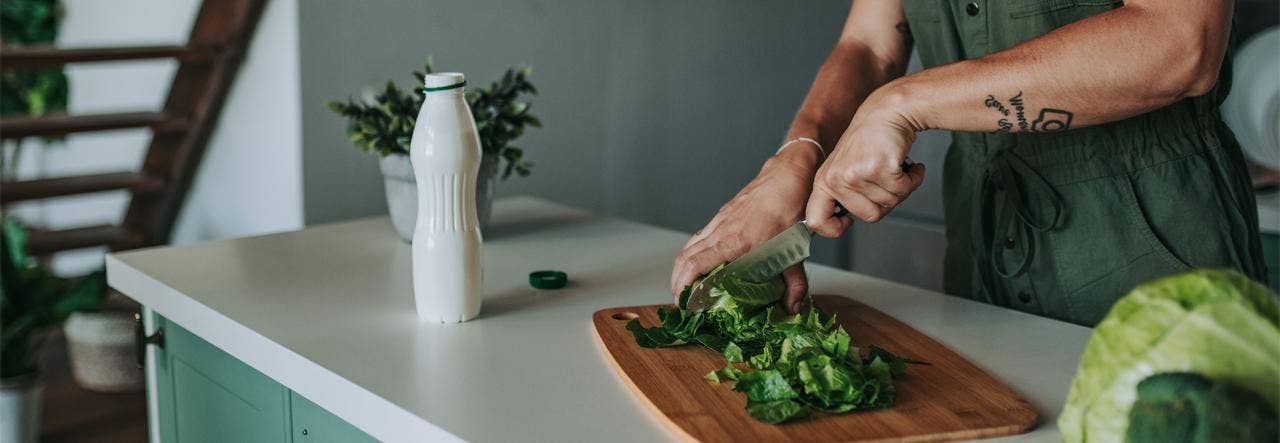It's time to address the big “C” word. Cancer. February is National Cancer Prevention Month but learning how to reduce the risk of cancer is something we should be talking about all the time, especially considering that cancer is the leading cause of death worldwide.
With more than 1.6 million Americans getting diagnosed with cancer each year – and more than half a million dying from it – you would be hard pressed to find someone whose life wasn’t touched in some way by the disease. Yet, many still aren’t taking an aggressive role in learning how to avoid cancer.
The importance of National Cancer Prevention Month is often overlooked, as is the notion that cancer is preventable in the first place. Is cancer really preventable? If so, how can we reduce our chances of getting cancer? Where do brands like Naturepedic come into play? Keep reading to discover the answers to these questions and more!
Is Cancer Preventable?
Cancer is a complex group of diseases with varying causes. The truth is that although some types of cancer do run in specific families, most cancers are not linked solely to the genetics that we inherit from our parents. Rather, they are caused by the way a person’s genetic make-up interacts with the toxic load that accumulates in their body as a result of their lifestyle.
In other words, cancer develops in part because of the carcinogens (or cancer-causing substances) that people expose themselves to. Some carcinogens are unavoidable. But many can and should be avoided. The less exposure, the lower the risk.
Are Carcinogens as Bad as People Say?
It’s tempting to dismiss carcinogens as a small concern. Almost everything these days has the potential to cause cancer, right? It can be challenging to navigate, especially when the use of harmful chemicals has become much more prevalent. Today’s average consumer encounters hundreds of harmful chemicals each day through:
- Personal care products
- Household cleaners
- Food
- Clothing
- Furniture
- Mattresses
- Even air and water!
How Much Exposure Is Too Much?


Imagine every human has a cup designated for toxin consumption within their body – our toxic load cup. Some have smaller cups than others; some cups may be quite large. However, whenever we are exposed to toxic chemicals, our body absorbs them either through our mouth, nose, or skin. This toxic load cup begins to fill, and through repeated use and exposure to carcinogenic substances, this cup will eventually overflow.
When this happens, it can lead to cancer. So, one single use of deodorant containing aluminum or one application of toothpaste containing fluoride will not cause cancer.
Nor will one night’s sleep on a mattress containing flame retardants, formaldehyde, polyurethane foam, PFAS and other questionable chemicals. However, repeated use and exposure can significantly increase your risk of getting cancer or other health issues.
How to Prevent Cancer Naturally
The most effective way to prevent cancer is to reduce your exposure to harmful chemicals linked to cancer. Period. If this seems daunting, try starting with the basics:
Air
Avoid tobacco in all of its forms, even secondhand smoke. It’s no secret that tobacco causes cancer. Additionally, open windows more and invest in an air purification system to improve your indoor air quality.
Water
Tap water can be filled with harmful synthetic chemicals and heavy metals such as arsenic, copper, lead and more. These wreak havoc on our health and can cause cancer. Invest in a trusted water filtration system for your home that covers all bases including drinking, cooking, showering and bathing.
Food
Eat organic and local as much as possible and be sure to consume a well-rounded diet to obtain proper nutrients. Avoid highly processed and packaged foods and limit consumption of alcohol.
Sleep
What we sleep on each night matters. The majority of mattresses today contain cancer-causing chemicals like flame retardants, formaldehyde, benzene and more. Sleeping on and breathing in these harmful ingredients for hours each night can increase your risk of cancer. Invest in a certified organic mattress from a trusted brand like Naturepedic that is committed to smarter, safer designs without the use of harmful chemicals.


Daily Habits That Can Help Prevent Cancer
Once you’ve covered the basics, you can focus on more specific changes in your daily life to help reduce your risk of cancer. Consider:
Exercise
Regular physical activity is a great way to reduce your risk of cancer, maintain a healthy weight, boost the lymphatic system, and improve cardiovascular health. Try aiming for at least thirty minutes of movement each day.
Vitamin D
Evidence suggests Vitamin D can reduce the risk of cancer. The most effective method for getting Vitamin D is the old-fashioned way – sun exposure. Morning sun exposure when the rays are less intense is best and can also improve your circadian rhythm and quality of sleep.
Non-toxic Products
Reading ingredient labels is important. While you can watch out for words like PFAS, aluminum, phthalates, parabens, sulfates, fluoride, fragrance (even “natural”) and anything ending in -glycol, the truth is these chemicals are hidden in many products and not always listed. The only solution is to look for products certified by GOTS, MADE SAFE®, National Green Pages and other reputable third-party entities. Toothpaste, deodorant and laundry detergent are great starting points for products to replace with non-toxic alternatives. So are pillows and bedding.
Intermittent Fasting
Our bodies are constantly producing new cells, some of which have the potential to become cancerous. Try keeping all meals and food consumption between the hours of 9 AM and 7 PM. This will give the body ample time to “fast” each night and regenerate healthy cells – a process called “autophagy.”


Pay Attention to Warning Signs of Cancer
Remember, prevention is a huge piece of the puzzle, but it’s not the only one. Being in tune with your own body for any potential warning signs can also help detect cancer symptoms at their earliest stage. The American Cancer Society developed the “C-A-U-T-I-O-N” system as a simple and easy reminder:
C: Change in bowel or bladder habits
A: A sore that does not heal
U: Unusual bleeding or discharge
T: Thickening or lump in the breast or elsewhere
I: Indigestion or difficulty in swallowing
O: Obvious change in wart or mole
N: Nagging cough or hoarseness
With more vigilant prevention and a better overall awareness, you can make a real dent in your personal risk of developing cancer. To learn more about how mattresses specifically can pose a risk, read this post.
 BABY
BABY  KIDS
KIDS  ADULT
ADULT  LEARN
LEARN  STORES
STORES 